BigInteger has a fast case for numbers of 31 bits or less. When you do a pairwise multiplication, this means a specific fast-path is taken, that multiplies the values into a single ulong and sets the value more explicitly:
public void Mul(ref BigIntegerBuilder reg1, ref BigIntegerBuilder reg2) {
...
if (reg1._iuLast == 0) {
if (reg2._iuLast == 0)
Set((ulong)reg1._uSmall * reg2._uSmall);
else {
...
}
}
else if (reg2._iuLast == 0) {
...
}
else {
...
}
}
public void Set(ulong uu) {
uint uHi = NumericsHelpers.GetHi(uu);
if (uHi == 0) {
_uSmall = NumericsHelpers.GetLo(uu);
_iuLast = 0;
}
else {
SetSizeLazy(2);
_rgu[0] = (uint)uu;
_rgu[1] = uHi;
}
AssertValid(true);
}
A 100% predictable branch like this is perfect for a JIT, and this fast-path should get optimized extremely well. It's possible that _rgu[0] and _rgu[1] are even inlined. This is extremely cheap, so effectively cuts down the number of real operations by a factor of two.
So why is a group of three so much slower? It's obvious that it should be slower than for k = 2; you have far fewer optimized multiplications. More interesting is why it's slower than k = 1. This is easily explained by the fact that the outer multiplication of total now hits the slow path. For k = 2 this impact is mitigated by halving the number of multiplies and the potential inlining of the array.
However, these factors do not help k = 3, and in fact the slow case hurts k = 3 a lot more. The second multiplication in the k = 3 case hits this case
if (reg1._iuLast == 0) {
...
}
else if (reg2._iuLast == 0) {
Load(ref reg1, 1);
Mul(reg2._uSmall);
}
else {
...
}
which allocates
EnsureWritable(1);
uint uCarry = 0;
for (int iu = 0; iu <= _iuLast; iu++)
uCarry = MulCarry(ref _rgu[iu], u, uCarry);
if (uCarry != 0) {
SetSizeKeep(_iuLast + 2, 0);
_rgu[_iuLast] = uCarry;
}
why does this matter? Well, EnsureWritable(1) causes
uint[] rgu = new uint[_iuLast + 1 + cuExtra];
so rgu becomes length 3. The number of passes in total's code is decided in
public void Mul(ref BigIntegerBuilder reg1, ref BigIntegerBuilder reg2)
as
for (int iu1 = 0; iu1 < cu1; iu1++) {
...
for (int iu2 = 0; iu2 < cu2; iu2++, iuRes++)
uCarry = AddMulCarry(ref _rgu[iuRes], uCur, rgu2[iu2], uCarry);
...
}
which means that we have a total of len(total._rgu) * 3 operations. This hasn't saved us anything! There are only len(total._rgu) * 1 passes for k = 1 - we just do it three times!
There is actually an optimization on the outer loop that reduces this back down to len(total._rgu) * 2:
uint uCur = rgu1[iu1];
if (uCur == 0)
continue;
However, they "optimize" this optimization in a way that hurts far more than before:
if (reg1.CuNonZero <= reg2.CuNonZero) {
rgu1 = reg1._rgu; cu1 = reg1._iuLast + 1;
rgu2 = reg2._rgu; cu2 = reg2._iuLast + 1;
}
else {
rgu1 = reg2._rgu; cu1 = reg2._iuLast + 1;
rgu2 = reg1._rgu; cu2 = reg1._iuLast + 1;
}
For k = 2, that causes the outer loop to be over total, since reg2 contains no zero values with high probability. This is great because total is way longer than partialTotal, so the fewer passes the better. For k = 3, the EnsureWritable(1) will always cause a spare space because the multiplication of three numbers no more than 15 bits long can never exceed 64 bits. This means that, although we still only do one pass over total for k = 2, we do two for k = 3!
This starts to explain why the speed increases again beyond k = 3: the number of passes per addition increases slower than the number of additions decreases, as you're only adding ~15 bits to the inner value each time. The inner multiplications are fast relative to the massive total multiplications, so the more time spent consolidating values, the more time saved in passes over total. Further, the optimization is less frequently a pessimism.
It also explains why odd values take longer: they add an extra 32-bit integer to the _rgu array. This won't happen so cleanly if the ~15 bits wasn't so close to half of 32.
It's worth noting that there are a lot of ways to improve this code; the comments here are about why, not how to fix it. The easiest improvement would be to chuck the values in a heap and multiply only the two smallest values at a time.
